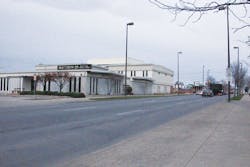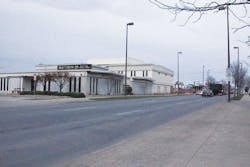Spotlight on a faith-based initiative: Matthew 25 dental clinic
BY CHRISTINE NATHE, RDH, MS
Last month's column focused on the historical perspective and current trend of faith-based initiatives, which emphasizes serving those in need and often integrate public and private collaboratives. This month, the focus is on a clinic that does just that, uses faith-based teachings to provide care missing within the current health system. Matthew 25 is a clinic located in Allen County, Indiana, which offers free medical, dental, vision, hearing, and prescription services to the underserved and those in need. The clinic focuses on treating those patients who are uninsured and ineligible for Medicaid and/or Medicare and have a low income or no income.
A small prayer group that had been studying Matthew in the Scriptures in the summer of 1975 felt compelled to apply those teachings; thus began the faith-based initiative. In fact, the clinic is named Matthew 25, which is a scripture in the New Testament of the Bible that reads: For I was hungry and you gave me something to eat, I was thirsty and you gave me something to drink, I was a stranger and you invited me in, I needed clothes and you clothed me, I was sick and you looked after me, I was in prison and you came to visit me ... I tell you the truth, whatever you did for one of the least of these brothers of mine, you did for me. Matthew 25:35-37,40 (NIV)
---------------------------------------------------
Other articles by Nathe
- Surveys track oral diseases: CDC data can be incorporated into community plans
- Elementary Care: Oral health supporters collaborate to develop school clinic
- Expanding school care: Author interviews Florida school-based public health hygienist
---------------------------------------------------
This original group of volunteers started with a clinic that began to offer free medical services to low-income, uninsured adults in 1976.1 An obvious need for help with dental problems appeared immediately. Interestingly, dental care is generally one of the most common unmet needs, when health initiatives begin. Matthew 25 started looking for dental volunteers, and several dentists accepted the calling. By 1979, a dental clinic was established in a house across from the health clinic.1 What is particularly interesting about the clinic is the longevity of a nongovernment-funded health initiative. What a great model for duplication, especially with the long-term funding issues often facing health care today.
The clinics still use volunteers to operate, but also employee staff members. A board of directors assists in decisions for the initiative. Matthew 25 receives no governmental funding and relies completely on gifts from individuals, churches, organizations, and corporations, as well as grants from foundations.1 Next month, the dental hygienist spotlight will be the staff dental hygienist from Matthew 25. RDH
Matthew 25 Clinic
• A few highly committed employees and 446 volunteers work varying numbers of hours as they can fit the time into their lives and practices. From retirees to physician specialists, most labor provided to Matthew 25 is high quality but uncompensated.
• In the fiscal year 2013-2014, Matthew 25 Clinic provided 24,255 patient visits.
• Dental clinic: Matthew 25 Clinic follows the American Dental Association's recommendations when it comes to preventive dental care. Matthew 25 patients are given an opportunity to come in every six months for regular checkups and routine teeth cleanings to prevent very expensive treatments.
Reference
1. Matthew 25 Health and Dental Clinic Information. Retrieved from http://www.matthew25online.org/who-we-are/ on March 31, 2015.
CHRISTINE NATHE, RDH, MS, is director at the University of New Mexico, Division of Dental Hygiene, in Albuquerque, N.M. She is also the author of "Dental Public Health Research" (www.pearsonhighered.com/educator), which is in its third edition with Pearson. She can be reached at [email protected] or (505) 272-8147.

